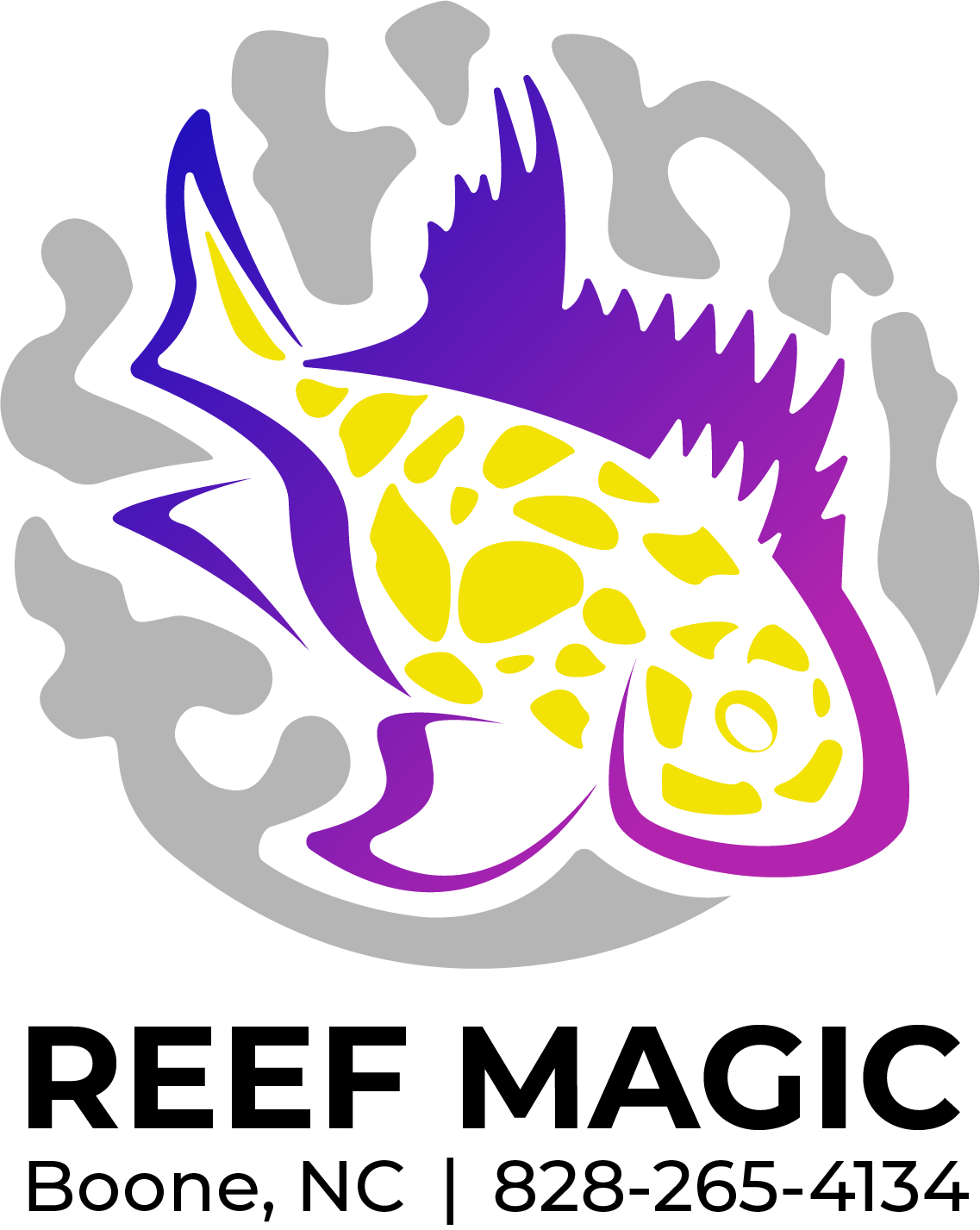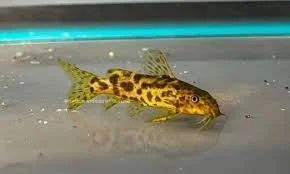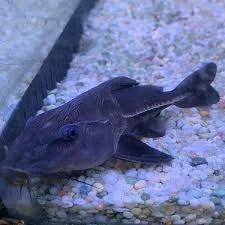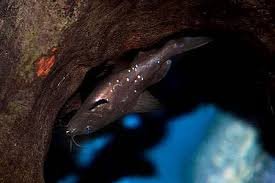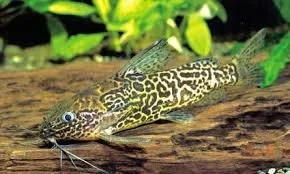 Image 1 of 1
Image 1 of 1


Catfish- Synodontis Yellow Marble
The Yellow Marbled Syno, or Synodontis schoutedeni, is a peaceful, bottom-dwelling catfish from the Democratic Republic of Congo, growing up to 6.7 inches. It is characterized by a variable marbled pattern, often with a yellow base color, a forked tail fin, and a spiny, hardened "head cap". The fish is omnivorous, nocturnal, and can make audible sounds when disturbed, and is best housed in a community tank with hiding spots.
Physical description
Size: Grows to about 6.7 inches (17 cm) standard length.
Coloration: Cream to yellow base color with a brownish-mauve marbled or vermiculated pattern that becomes more pronounced with age.
Fins: Has a forked caudal fin, and the first rays of the dorsal and pectoral fins are hardened and serrated.
Head: Features a unique "head cap" with a bony humeral process behind the gill opening.
Barbels: Possesses one pair of long maxillary barbels and two pairs of mandibular barbels.
Behavior and habitat
Behavior: Generally peaceful but territorial, especially towards its own kind if hiding spaces are insufficient.
Nocturnal: Primarily active at night, it can often be seen resting upside down in its tank.
Sound: Makes audible squeaking sounds when disturbed by rubbing its pectoral fin spine.
Habitat: Native to the Congo River basin, it prefers soft, sandy substrates and needs plenty of hiding places like rocks, driftwood, or pipes to feel secure.
Care requirements
Tank size: A minimum of 60 gallons is recommended.
Water parameters: Maintain a pH of 6.0−7.5 and a temperature of 71.6−78°F (22−26°C).
Diet: Omnivorous and not a fussy eater; it should be fed a varied diet of high-quality sinking pellets supplemented with live or frozen foods like bloodworms and brine shrimp.
Tankmates: Can be kept with other peaceful community fish such as larger barbs, rainbowfish, or medium-sized cichlids.
The Yellow Marbled Syno, or Synodontis schoutedeni, is a peaceful, bottom-dwelling catfish from the Democratic Republic of Congo, growing up to 6.7 inches. It is characterized by a variable marbled pattern, often with a yellow base color, a forked tail fin, and a spiny, hardened "head cap". The fish is omnivorous, nocturnal, and can make audible sounds when disturbed, and is best housed in a community tank with hiding spots.
Physical description
Size: Grows to about 6.7 inches (17 cm) standard length.
Coloration: Cream to yellow base color with a brownish-mauve marbled or vermiculated pattern that becomes more pronounced with age.
Fins: Has a forked caudal fin, and the first rays of the dorsal and pectoral fins are hardened and serrated.
Head: Features a unique "head cap" with a bony humeral process behind the gill opening.
Barbels: Possesses one pair of long maxillary barbels and two pairs of mandibular barbels.
Behavior and habitat
Behavior: Generally peaceful but territorial, especially towards its own kind if hiding spaces are insufficient.
Nocturnal: Primarily active at night, it can often be seen resting upside down in its tank.
Sound: Makes audible squeaking sounds when disturbed by rubbing its pectoral fin spine.
Habitat: Native to the Congo River basin, it prefers soft, sandy substrates and needs plenty of hiding places like rocks, driftwood, or pipes to feel secure.
Care requirements
Tank size: A minimum of 60 gallons is recommended.
Water parameters: Maintain a pH of 6.0−7.5 and a temperature of 71.6−78°F (22−26°C).
Diet: Omnivorous and not a fussy eater; it should be fed a varied diet of high-quality sinking pellets supplemented with live or frozen foods like bloodworms and brine shrimp.
Tankmates: Can be kept with other peaceful community fish such as larger barbs, rainbowfish, or medium-sized cichlids.
